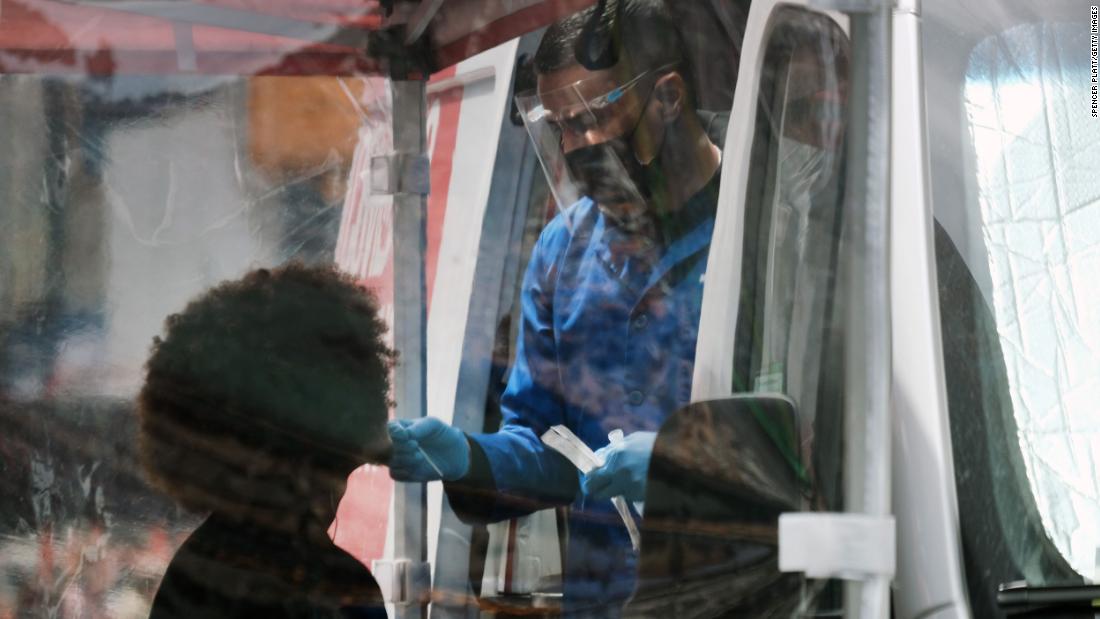
What should people know about these new subvariants, especially as many are gathering for celebrations such as Mother’s Day and graduations? What kinds of precautions should they take? How can people gauge their own risk, and are there some gatherings people need to skip?
Dr. Leana Wen: We know that the original Omicron variant was already more transmissible than previous variants like the Delta variant. Individuals infected with Omicron tended to have milder disease than those infected with Delta. And though the vaccines are less effective against Omicron than against some previous variants, vaccines and boosters still provide excellent protection against severe disease due to Omicron.
The same seems to be the case with these new Omicron subvariants. There is no evidence that they cause more severe disease, and vaccination and boosters still are the best form of protection against severe illness. They do, though, seem to be even more transmissible than the original Omicron BA.1, which means that avoiding the coronavirus is even harder than before.
CNN: Are these new subvariants still spread the same way?
Wen: Yes. As a reminder, SARS-CoV-2, the virus that causes Covid-19, is a respiratory virus that can be spread by close contact and by the airborne route (through the air). If you are around someone who is infected, and they cough or sneeze, those particles could be transmitted to you.
Also, because Covid-19 is airborne, it could be transmitted just by someone breathing or speaking. There is also the theoretical possibility of surface transmission, meaning that if someone who’s infected touches a doorknob, then you touch it and then you touch your nose or mouth, you could be infected.
These new variants are so contagious that a cloth mask just isn’t sufficient. You really should be wearing a high-quality respirator mask, like an N95, KN95 or KF94. Make sure the mask is well-fitting. Adults who can’t tolerate such masks or children too young to wear these masks should wear at least a 3-ply surgical mask. To ensure better fit, they could also wear a cloth mask on top.
CNN: What kinds of precautions should people take when going to graduation parties, Mother’s Day celebrations and other events?
Wen: There are three main types of precautions — vaccines, testing and masking. How many you decide to take depends on your medical circumstances, the level of Covid-19 in your community and your own risk calculus for how much you want to keep avoiding Covid-19.
First, let’s talk about the three precautions. Vaccines and boosters protect very well against severe disease. They also reduce the chance of infection. Make sure you are up to date on your booster, including deciding about a second booster if you are eligible.
Taking a rapid home test right before get-togethers can also reduce risk. These tests measure how infectious you are at that point in time, so they should be taken as close to the gathering as possible. Having a negative test three days ago only says that you don’t have enough Covid-19 at that point to show up on the test; it doesn’t say that you aren’t infectious now. If everyone takes a negative test right before getting together, that also reduces risk.
Of course, masking also reduces risk. I don’t think it’s very practical to ask that people getting together for dinner mask, and a lot of social events that involve food and drink can’t realistically enforce masking. But if you are a person at high risk for severe illness from Covid-19 and really want to avoid the coronavirus, it’s always a choice for you to mask even when others around you aren’t.
You could attend a graduation ceremony in an N95 or other high-quality mask. You could go to the reception after where others are eating and drinking but you choose not to. And you could choose only to go to a small gathering for Mother’s Day with close family, all of whom are cautious and tested right before, rather than a large party.
CNN: Would you recommend that events have vaccine and testing requirements?
Wen: That depends on the event. If it’s outdoors, I don’t think either requirement is necessary. Indoor events with a lot of people, especially in areas with higher Covid-19 transmission, should consider requiring proof of vaccination and ideally boosters. Having same-day testing also reduces risk.
If you are at high risk for Covid-19 complications, or if you really do not want to get the coronavirus, you might want to take additional precautions yourself. Wear a mask, as I mentioned above, and skip indoor events with food and drink unless you are OK forgoing the food and drink and masking the whole time. Create a plan in advance, including choosing to leave if you feel uncomfortable.
I would also advise people that any time you are associating with others, you have a risk of contracting Covid-19. That doesn’t mean you shouldn’t do any gatherings. It means that you should be aware of your risk and think through, in advance, how much you want to keep avoiding the coronavirus. If you want to avoid it, then take additional precautions. Know that the new and even more contagious subvariants mean that it’s even harder to avoid the coronavirus than before.
Some people may decide that they really want to attend a higher-risk event despite the risks. If that’s the case, they should get tested three days after the event and definitely before visiting immunocompromised family members. Also, know in advance if you are eligible for treatments like antiviral pills.
At this point in the pandemic, it’s unrealistic to tell people to avoid gatherings. But we can help people understand and weigh their own risks, and also take precautions both at the events and after to reduce the risk to themselves and others around them.
